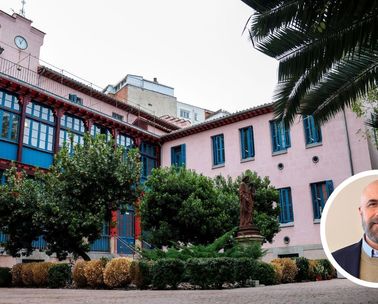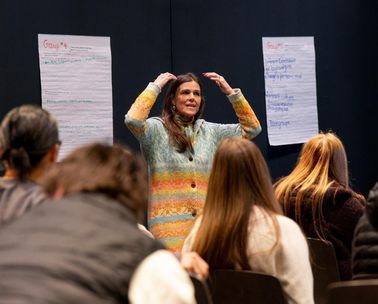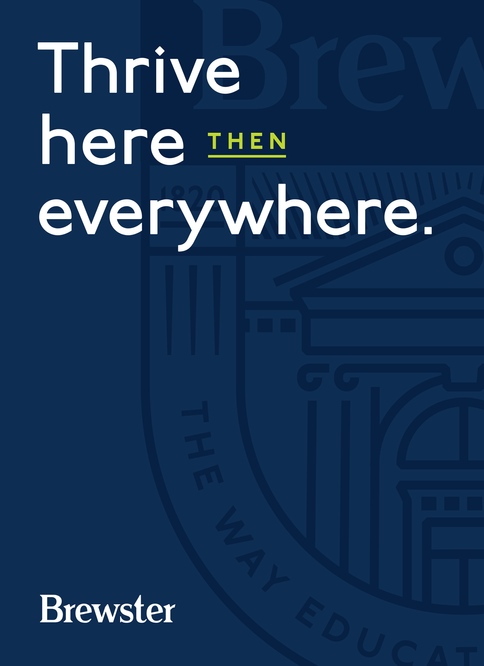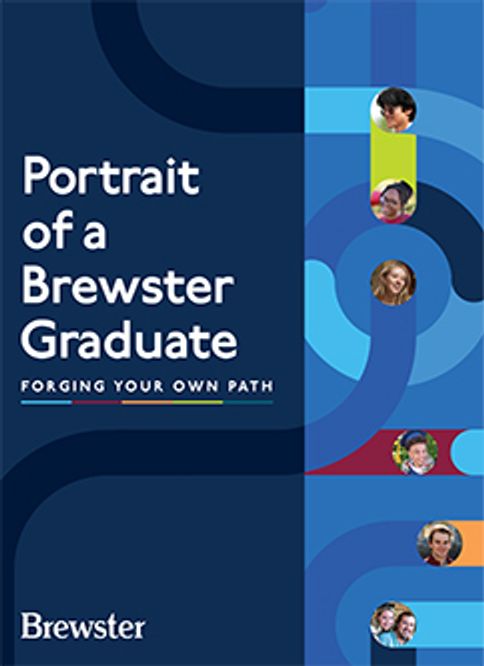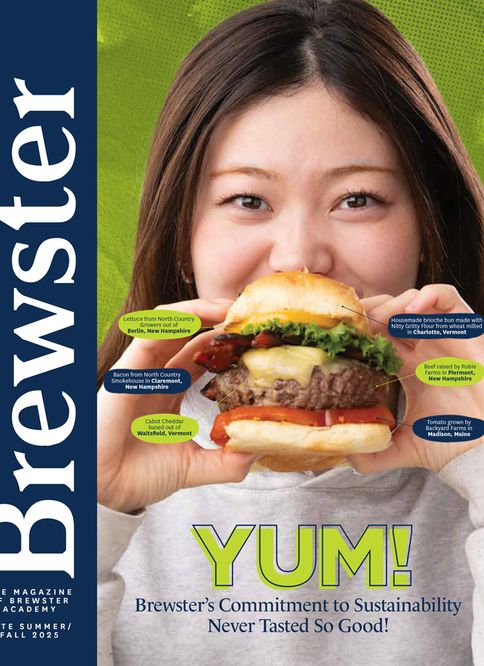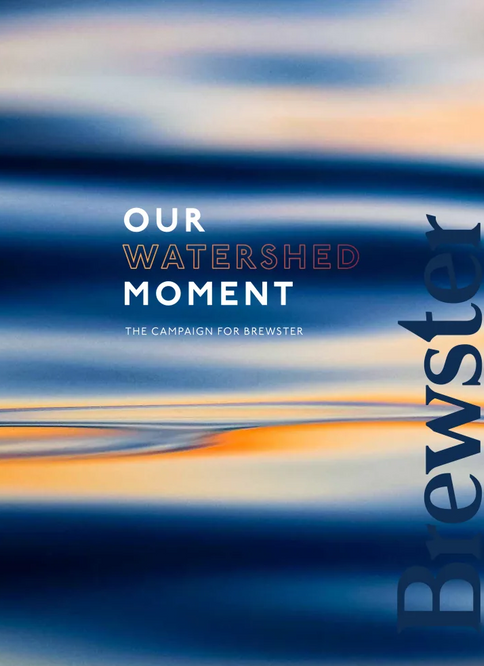

Read, Write, and Think!
The English program supports students’ educational development through small classes, culturally relevant teaching practices, and a combination of groupings that create an effective and engaging learning environment. Paramount in this educational process is the effort of teachers to meet the individual needs of students.
“Without words, without writing, and without books ... there could be no concept of humanity.”

Ways of Seeing, Ways of Showing
In this course, students study a variety of stories in a variety of genres. Along with exploring some traditional ways of storytelling—short stories, plays, poems, and short novels—students study visual and multimedia forms as “texts,” reading and interpreting with the same language employed when considering literary pieces.
English Courses
Genres in Literature and Writing
In this 9th-grade course, students read, think, and write about a variety of literary classics, including a range of poetry and prose. The major texts for the course are The House on Mango Street by Sandra Cisneros, Shakespeare’s Romeo and Juliet, and Haroun and the Sea of Stories
by Salman Rushdie. Using these texts and others, students develop their abilities to read, react, and respond to literature. Key summative writing assessments include personal vignettes based on the style of The House on Mango Street, a character analysis in Romeo and Juliet, and a personal narrative developed from a portfolio process. Overall, students learn how to use their own writing to understand themselves and their ideas.
Elements of Literature and Writing
In this sophomore-year course, students focus on reading, thinking, and writing about fiction,
poetry, and drama. To help understand the purpose and significance of literature they read,
students discover and explore interdisciplinary contexts, form opinions, make connections, and
ask and answer their own questions. Readings include a selection of short stories, Laurie Halse
Anderson’s Speak, George Orwell’s Animal Farm, Shakespeare’s Much Ado About Nothing, and
poetry from the 16th Century to today. Throughout the course, students develop and improve
their skills of communication by practicing active reading strategies, employing discussion
techniques, writing regular personal reflections and formal compositions that are both creative
and analytical, presenting on their findings, and producing multimedia projects.
Contemporary American Literature and Critical Analysis
In this junior-year course, students study 20th-century and current American literature.
Throughout the year, students will analyze, discuss, and respond to diverse works of American
poetry, essays, narratives, drama, nonfiction, and fiction. Readings include F. Scott Fitzgerald’s
The Great Gatsby and Tim O’Brien’s The Things They Carried, poetry from the Harlem
Renaissance, as well as more contemporary short stories. As they navigate varied American
perspectives, students will hone their analytical, persuasive, and creative writing skills. This
course strives to challenge students’ understanding of American society as a whole, as well as
their concepts of identity, belonging, and community.
Contemporary World Literature and Critical Analysis
In this course, students spend the first weeks writing personal essays that should culminate in
an effective and engaging college essay. Then, students focus on global literature to approach the
following course question: What does literature teach us about that which is universal to the
human experience and that which is shaped by culture? To synthesize an answer to this
question, students analyze essays, poems, plays, stories, novels, and films that feature a variety
of global perspectives. Readings introduce cultures from the Caribbean, South America, the
Middle East, and China, among others. Throughout the year, students develop their
understanding of literary genres, elements, and techniques, and employ a writing process that
places significant emphasis on pre-writing, drafting, revising, and editing.
Reading and Writing the Modern Essay
In this writing-intensive course, students focus on the genre of the essay. Throughout the
course, students read exemplary texts and focus on analyzing the techniques that writers use to
engage and persuade the audience, and they work to employ these techniques in their own
writing. Techniques that receive significant attention include structure, language, rhetoric, using
outside sources, and wit. As they read, students practice and refine their active reading
strategies and focus on analyzing how and why writers design their essays and employ particular
techniques. As they compose, students make consistent use of the writing process, continually
practicing and refining their pre-writing, drafting, revising, and editing skills. Additionally,
students frequently practice their peer review and feedback skills, which are integrated into the
writing process. Students create and collect a portfolio that includes both expository and
persuasive essays that make intentional use of techniques relating to structure, language, and
rhetoric.
Ways of Seeing, Ways of Showing
What are the many ways we tell our stories and convey our ideas? How is the way we see a
learned skill and something that can be developed? In this course, students will study a variety
of stories in a variety of media. Along with exploring some traditional ways of storytelling—short
stories, plays, and poems—students will study visual and multimedia forms as “texts,” reading
and interpreting with the same language employed when considering literature. The class will
consider the relationship between the written word and the visual world, in how we see and
understand, and in the power of narrative and its shape. Students will discover how stories
surround us, hiding in plain sight, and how to better interpret those stories. This class is also for anyone curious about how two- and three-dimensional art, multimedia forms, video, and film have a place at the table in an English classroom.
Advanced Placement English Language and Composition
In the first three modules of this college-level course, students will undertake a comparative
study of the short story with a focus on the essential elements of fiction, begin a year long
meditation on lyric poetry, and give serious consideration to an Aristotelian understanding of the
tragic form in Sophocles’ Oedipus Cycle. In the subsequent module, students will turn their
attention to the centrality of Shakespeare to our imagination in Macbeth, Othello, and King
Lear. Our final module examines the genre of the novel with a particular focus on Toni
Morrison’s Beloved. In May, students will take the AP exam in Literature and Composition.
Particular attention is given to daily quizzes and tests that prepare students specifically for the
national exam. Throughout the year, students will continue to hone their mastery of the writing
process and develop their ability to write effective essays.
AP Seminar: The Self and the World
The AP Capstone Seminar course presents students with opportunities to engage in an in-depth
study of real-world or academic issues or problems, analyzing them from multiple perspectives.
The overarching theme of the course focuses on exploring the complexities of one’s multiple and
evolving identities, an individual’s roles in, relationships with, and responsibilities toward their
local and global communities in an effort to broaden one’s understanding of citizenship.
Ultimately, the goal of the course is to help students answer the essential question: What Makes
a Citizen? Exposure to multiple perspectives and content from different disciplines allows
students to appreciate, better comprehend, and engage in conversations on civic identity
formation and development, and discuss, analyze, and evaluate ideas associated with engaged
citizenship in local and global contexts. Throughout the year, students practice critical reading,
writing, and research skills in an effort to craft, communicate, and defend evidence-based
arguments in collaboration with others or in their independent work. Developed skills are
applied as students research topics of their choosing for the multipart AP exam.



